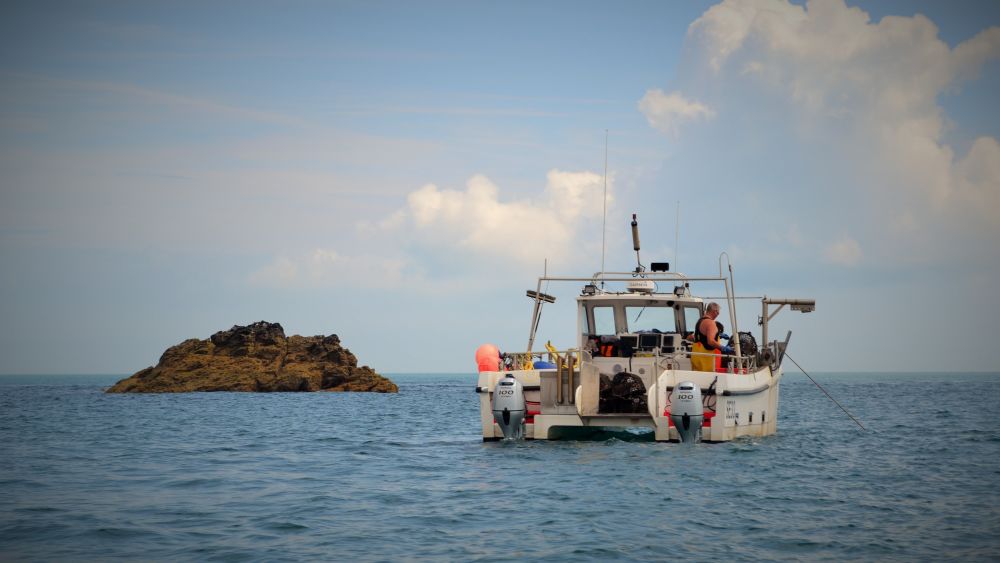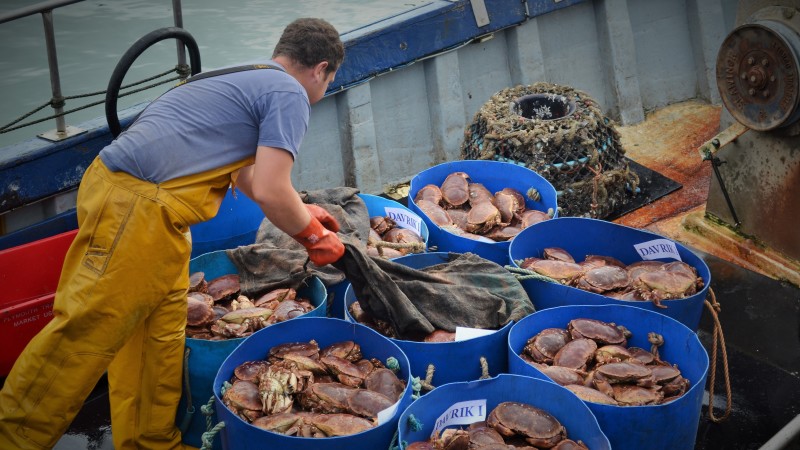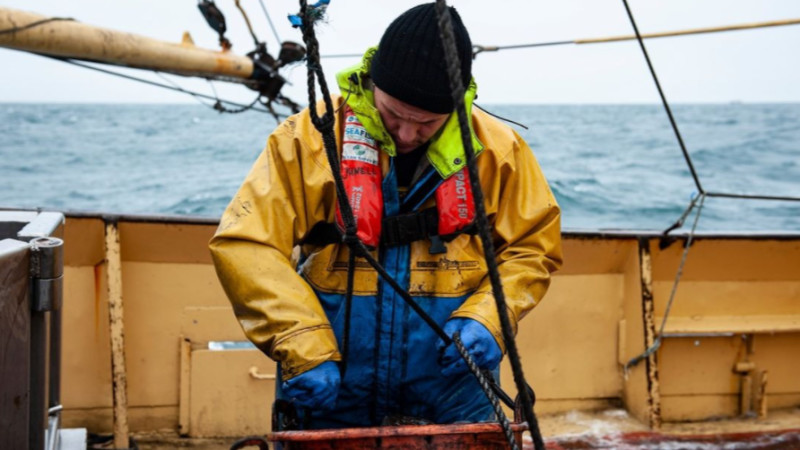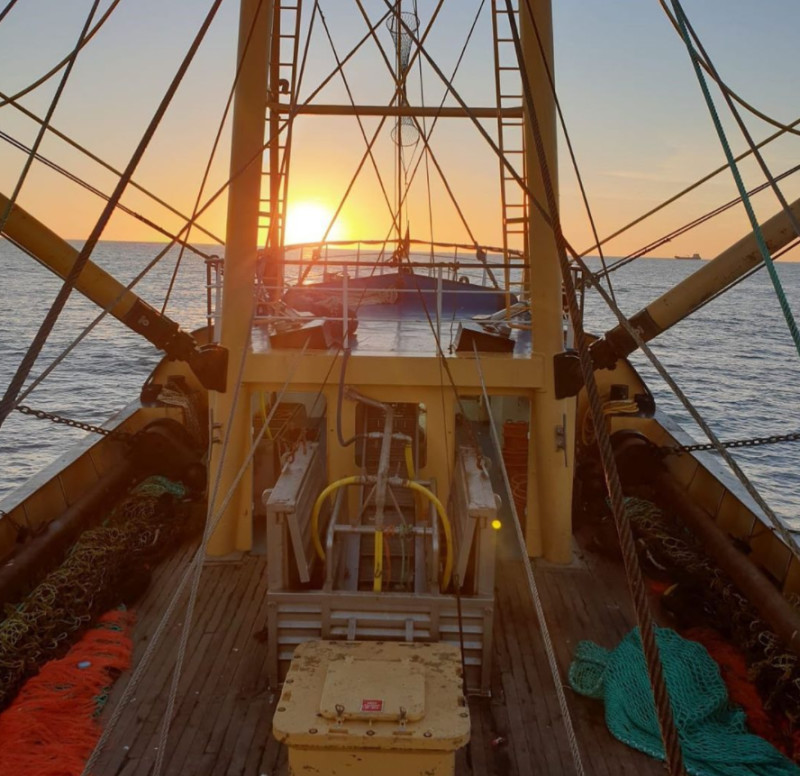- Iterate
- Meet The Team
- How Brexit Made The British Fishing Industry Political
How Brexit Made The British Fishing Industry Political
Getting control back of fishing waters, which would allow British fishermen to have a larger quota of their own catch, was a real selling point during the Brexit campaign. It's thought that almost 92% of fishermen in the UK voted to leave the EU. However, the reality of the deal has left many disappointed.

When the UK officially left the EU at the end of last year with a deal at long last, the British public was still as divided on the issue as it had been since the referendum in 2016. Some were relieved, feeling that four years of loose ends had finally been tied up. However, others voiced their concerns over the deal - and whether it truly left the UK in a good place. One such group has been fishermen, who voted overwhelmingly in favour of Brexit - it’s thought that as many as 92% of them voted to leave the EU.
Even though the UK fishing industry is relatively tiny, making up less than 1% of the GDP, it’s been an important group, politically, over the past five years.
Getting “control” back over fishing waters, which would allow British fishermen to have a larger quota of their own catch, had been a real selling point during the Brexit campaign. As a result, fishing became an important political bargaining chip.
Yet, the final deal left many of them disappointed. The general consensus was that it left the UK with very little gains at the expense of bigger losses. While British fishermen will gradually be able to catch more fish in UK waters over the next five years, the deal put an end to the “quota swapping” system, which allowed deals to be made with mainland Europe.
The aftermath has caused problems at borders when transporting fresh fish due to new customs requirements and increased bureaucracy. These delays often mean that a part of the catch becomes unusable.
The Org spoke to the parties affected about the fallout of Brexit and what the British fishing industry needs to move forward.

Fisheries were struggling before the deal and even before the pandemic hit; market prices for catches fell by as much as 40% as demand from the equally affected hospitality sector dramatically dropped. For many, things have only continued to worsen. When presenting evidence at an Environment, Food and Rural Affairs (EFRA) Committee inquiry last week, the Senior Manager of Fisheries and Quota at fishing company Waterdance, Martyn Yuell, said: “There are businesses really struggling to stay afloat. They need help to get through the next weeks and months, in whatever form that takes, be that a compensation scheme from the Government or something else.”
In terms of short-term relief, the government announced a £23M relief package for seafood exporters and also committed £100M in funding to “help modernise fishing fleets, the fish processing industry, and rejuvenate a historic and proud industry in the UK.” Additionally, £32M has been set aside to replace EU funding this year.
This urgently needed support has not been received by everyone, though. Brixham, one of the UK’s most vital fishing ports, hasn’t seen any of its exporters be eligible to access it yet, according to Yuell. He told the EFRA inquiry: “It is almost like an evil plan was conducted to undermine the fishing industry. It could not have been done any better. Making it possible for everybody to access that £23 million — not just those who had failed shipments but those who battled through and incurred extra costs to get delayed shipments through — would be a help.”
Beyond the £23M compensation scheme, the government also set up a task force last month to deal with the new exporting issues that arose.
A Department for Environment, Food and Rural Affairs (DEFRA) spokesperson told The Org: “We recognise the issues businesses involved in the export of highly perishable fresh and live seafood are facing, and as such are working closely with the fishing industry and authorities in EU Member States to ensure that goods can continue to flow smoothly to market.”
DEFRA also said it is holding “weekly meeting industry groups” as well as meeting with “Dutch, French and Irish officials” to resolve documentation issues.
Beshlie Pool, the executive officer at fishing association South Devon and Channel Shellfishermen Ltd, told The Org that it’s also important that the relief announcements, while necessary, shouldn’t overshadow the need for detailed, long-term solutions to the current problems.
“Some of our exporting members have experienced extreme issues both on the UK and EU side, and some are facing down additional costs of between half and three-quarters of a million pounds a year in order to continue business as usual,” she said. “The sad fact is that many businesses won't be able to absorb such costs and that there will be restructuring. Compensation is not a long-term solution, it will help in the short term, whilst businesses decide if and how they can continue and remain profitable.”
Barrie Deas, Chief Executive at the National Federation of Fishermen’s Organisations (NFFO) agrees, and tells The Org that extra funding, such as the £100M, is useful, but must only be thought of as a crutch and not a serious solution.
“The best way to regenerate our coastal communities is to provide them with sustainable fishing opportunities,” he says. “That is what has been lost.”
The government has since taken steps to push certain initiatives forward. This week it announced the creation of a Seafood Response Fund (SRF), which is “designed to help UK fishing and shellfish aquaculture businesses that have been affected by the downturn of export and domestic markets for fish and shellfish.” The Home Office has also accepted new immigration rules at the advice of the Migration Advisory Committee, which will allow immigrants to easier seek skilled worker visas to get work as deckhands on large fishing vessels in Scotland.

Due to the changing nature of the relationship between the UK and the EU’s fishing industries, a lot has to change on a national level. Some 70% of the UK’s local catch is sent abroad, and 70-80% of the seafood consumed comes from overseas.
Yuell feels that there is scope to build up a national demand for locally sourced fish whilst working on maintaining a good working relationship with the EU, and calls for a “rejuvenation” within the British public to encourage them to consume more of the local catch.
“Waterdance is collaborating with a number of organisations to promote UK-caught seafood to UK consumers to increase consumption for the health benefits and simply as they are great products we believe people will enjoy if they give them a chance.”
He believes there’s an appetite for connecting local fisheries directly to consumers, as people’s tastes continue to shift and adapt to the supply change shocks caused by the pandemic.
There has been an acknowledgment of these issues on behalf of the government. On a conference call with MPs from coastal areas two weeks ago, prime minister Boris Johnson said he will launch a campaign to encourage buying locally sourced fish, which the BBC reported had been a welcomed suggestion by Deas and the NFFO. Johnson also assured those on the call that he will do more to listen through the coastal communities’ concerns, especially concerning exports to the EU.

Many fisheries now want their problems to be prioritised, given how big a mouthpiece fishing was during the Brexit campaign.
The current exporting issues plaguing fisheries are costing British companies. Yuell told the inquiry that Waterdance has already accrued £400,000 in increased costs “to try to avoid EU buyers shouldering all of the extra costs and being completely put off south-west fish.” He also explained that fisheries are having to hire extra people just to deal with the amount of piling paperwork.
Pool says: “We can't really call these teething problems; many of the issues with things like exporting were foreseen and raised with the UK government in the years prior to the withdrawal.”
Deas adds that bilateral deals, as they stand now, hold unclear outcomes.
“A lot depends on what will happen on the issue of quota exchanges, currently under discussion in the bilateral negotiations. Without quota exchanges, many vessels will have considerably less quota than they had in 2020 and will struggle to survive. There is no clarity on what will happen.”
--
The Org is a professional community where transparent companies can show off their team to the world. Join your company here to add yourself to the org chart!
In this article


The ORG helps
you hire great
candidates
Free to use – try today